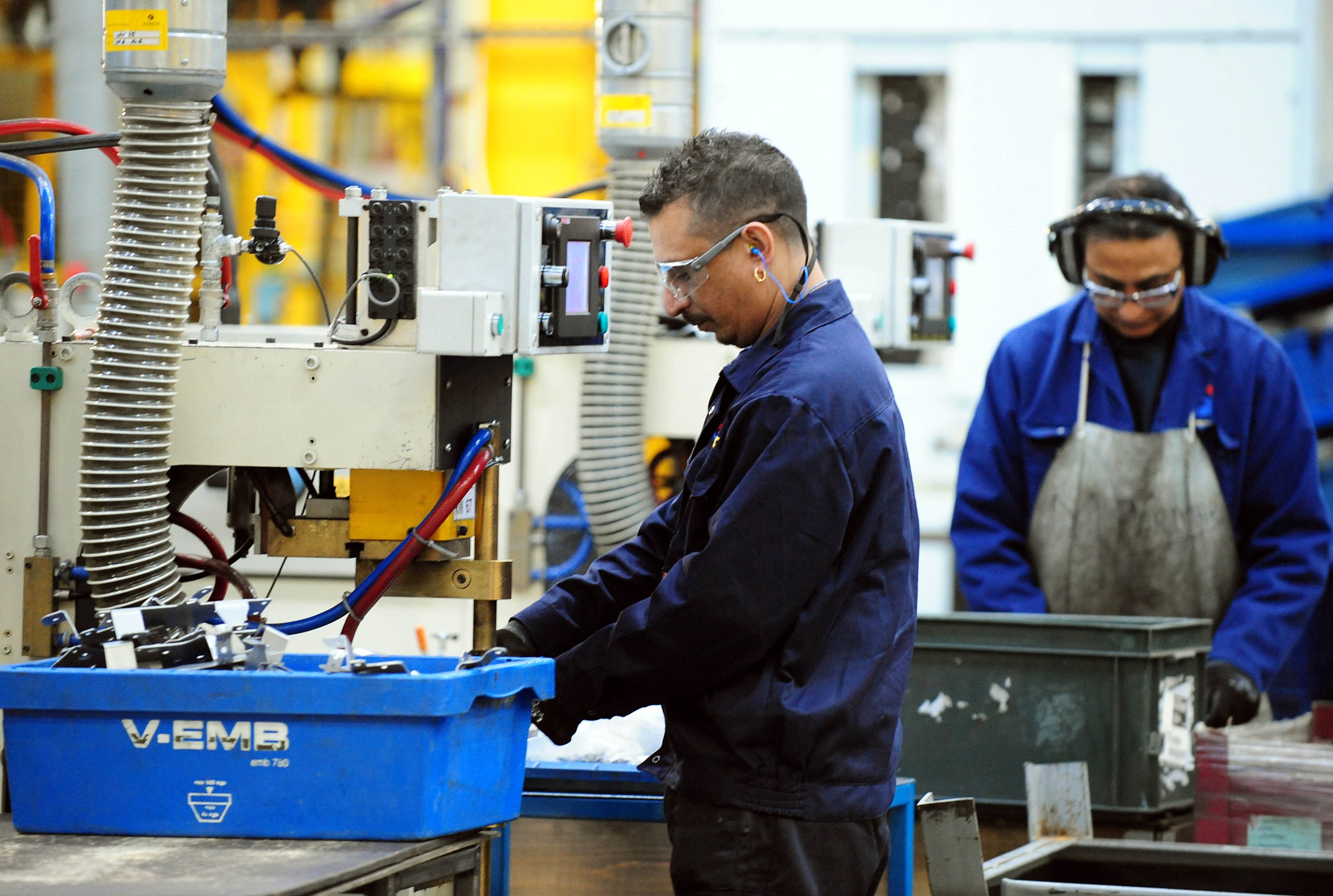Manufacturing output growth ramps up as supply chain crisis ‘passes its peak’
The IHS Markit/CIPS manufacturing purchasing managers’ index showed output grew in January at its fastest pace since July 2021.

Your support helps us to tell the story
From reproductive rights to climate change to Big Tech, The Independent is on the ground when the story is developing. Whether it's investigating the financials of Elon Musk's pro-Trump PAC or producing our latest documentary, 'The A Word', which shines a light on the American women fighting for reproductive rights, we know how important it is to parse out the facts from the messaging.
At such a critical moment in US history, we need reporters on the ground. Your donation allows us to keep sending journalists to speak to both sides of the story.
The Independent is trusted by Americans across the entire political spectrum. And unlike many other quality news outlets, we choose not to lock Americans out of our reporting and analysis with paywalls. We believe quality journalism should be available to everyone, paid for by those who can afford it.
Your support makes all the difference.UK factory output grew at its fastest pace for six months in January despite the spread of the Omicron variant of coronavirus amid signs that the supply chain crisis has passed its peak, a report has shown.
The closely-watched IHS Markit CIPS manufacturing purchasing managers’ index (PMI) revealed that the rate of production output ramped up for the third straight month to its highest since July 2021.
The report shows that, while global supply chain disruption and worker shortages held back overall growth in the sector, there was a welcome easing in delays and logistics troubles.
This helped see input price inflation rise at the slowest pace for nine months, though it remained at “stomach-churning” levels, according to the Chartered Institute of Procurement& Supply (CIPS).
Overall expansion in the sector fell slightly last month on sluggish new orders, while exports “barely rose”, according to the survey.
Although supply chain constraints continued to stymie growth, there were signs that these were past their peak, a factor contributing to a slight easing in purchase price inflation
The PMI reading stood at 57.3 in January, down from 57.9 in December.
However, the sector remained in growth territory for the 12th month in a row, with any score above 50 on the index representing expansion.
Rob Dobson, director at IHS Markit, said: “UK manufacturing made a solid start to 2022, showing encouraging resilience in the face of the Omicron wave, with growth of output accelerating as companies reported fewer supply delays.
“Causes for concern remain, however, as new orders growth slowed, exports barely rose, staff absenteeism remained high, and manufacturers’ ongoing caution regarding supply chain disruptions led to the beefing-up of safety stocks.”
Manufacturers continued to cite problems due to supply chain issues, in particular with raw material shortages, transportation delays and difficulty in sourcing goods.
But supplier lead times lengthened to the least marked extent since November 2020.
Some manufacturers may have overordered during the pandemic to guard against shortages which could now turn into a glut of inventories, putting downward pressure on prices
IHS Markit said: “Although supply chain constraints continued to stymie growth, there were signs that these were past their peak, a factor contributing to a slight easing in purchase price inflation.”
Employment growth also shot up to its second strongest level for 11 years as manufacturers recruited to help match rising demand and address backlogs of work, as well as new projects and future expansion plans.
Martin Beck, chief economic adviser to the EY Item Club said easing supply delays and capacity pressures in the manufacturing sector should continue throughout 2022, helping cool wider UK inflation from current near 30-year highs.
He said: “The global move towards lifting Covid-19 restrictions will take some of the heat out of goods demand, as consumer spending shifts to services.
“And some manufacturers may have overordered during the pandemic to guard against shortages which could now turn into a glut of inventories, putting downward pressure on prices.
“These factors contribute to the EY Item Club’s expectation that inflation should head down later this year.”